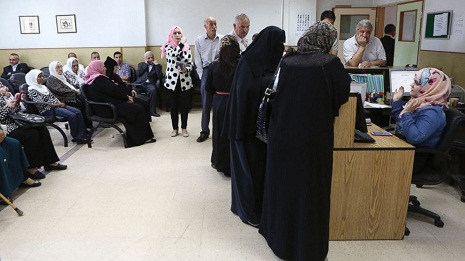“I will be fasting for sure,” he told ABC News. “I’ve been doing it all my all life. I would not stop during Ramadan, the fast.”
Mousfar, of New York City, has been a diabetic for over 20 years, but said his diabetes hasn’t stopped him from observing Ramadan.
“I really look at fasting as [spiritual,]” Mousfar said. “It’s body and soul work together.”
In previous years, Mousfar said his doctor found that he lost weight and had better blood sugar following the fast. But even in his own family fasting for Ramadan can cause problems. His brother, also a diabetic, has had his blood sugar drop below safe levels during Ramadan and ended up breaking the fast as a result, he said.
At the Islamic Center of America in Dearborn, Michigan, Executive Administrator Kassem Allie said diabetes has become a growing concern in the local community. Those who have a medical issue such as diabetes or pregnancy are allowed to break the fast for their health, but Allie said some try to adhere to the rituals anyway.
“People are disappointed they can’t fast,” Allie said of those with diabetes. “Some people hesitate to go to the doctor because they say I can’t fast. They try it for a couple days and see how you do.”
He explained that many people are reluctant to give up the rituals around Ramadan, including the big meal enjoyed at sunset with family and friends.
“They fast for 25 and 30 years and suddenly they develop this malady,” said Allie. “Fasting becomes a way of life and it’s a traditional [and] communal.”
Diabetes has been steadily rising in the Middle East and North Africa -- areas with a high population of Muslims, according to the Associated Press. In the U.S., about 9.3 percent of the population have diabetes.
Lisa Cimperman, a dietitian at University Hospitals Case Medical Center, said it’s unlikely that people with Type 1 diabetes can safely fast due to the sensitive nature of their condition. She said those with Type 2 diabetes -- once known as adult-onset diabetes -- could likely just “flip” their schedule so that their normal daytime schedule of calibrated pills and carbohydrates is changed to night so that their blood sugar level remains stable.
“This would definitely be a time for even individuals with Type 2 diabetes to check their blood sugar regularly throughout the day,” said Cimperman, who explained many people with Type 2 diabetes don’t have to check their blood sugar multiple times daily.
“That will be the best way to see how their body is reacting to fasting,” she said.
More about:
















































